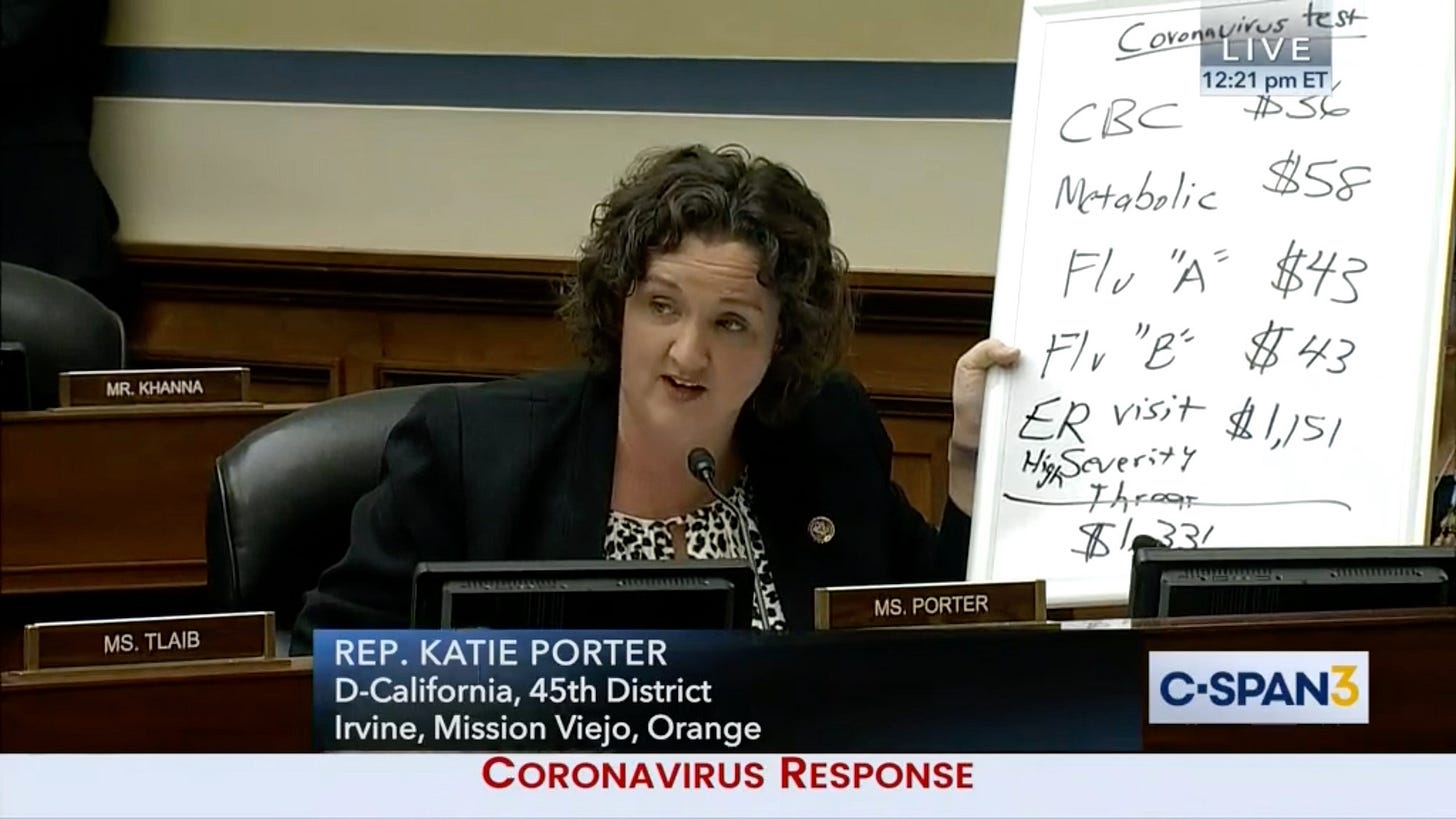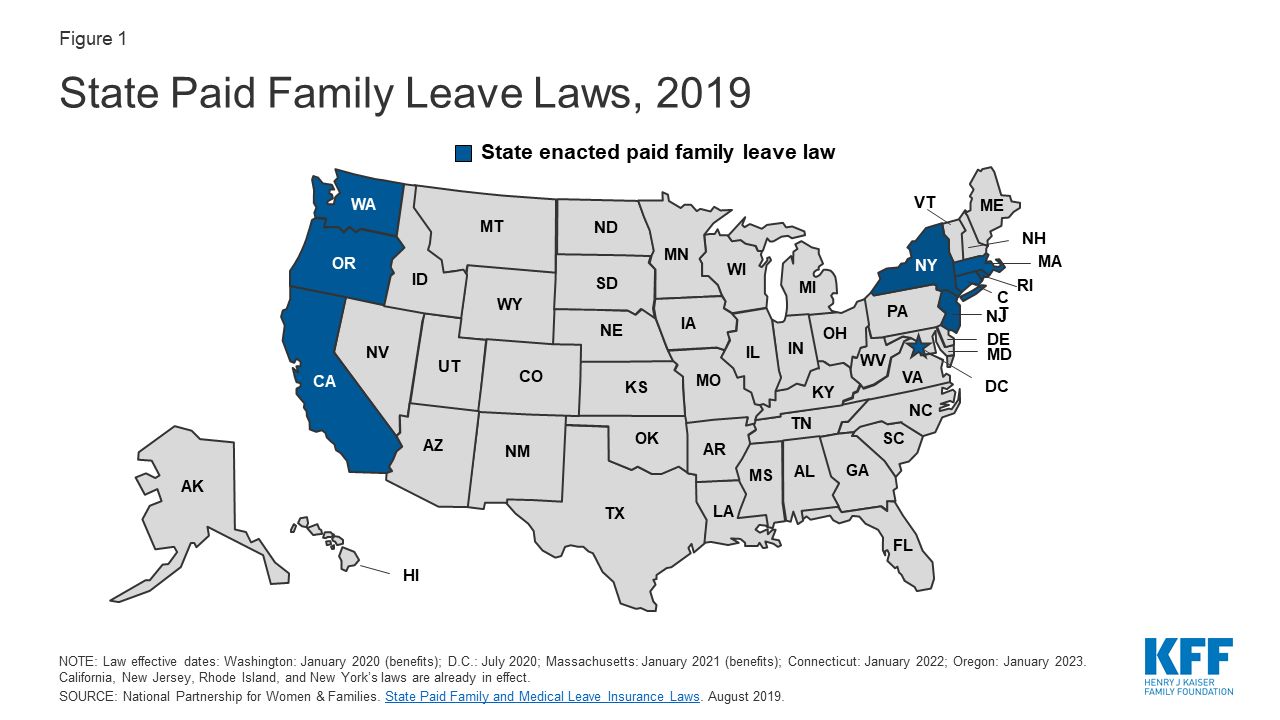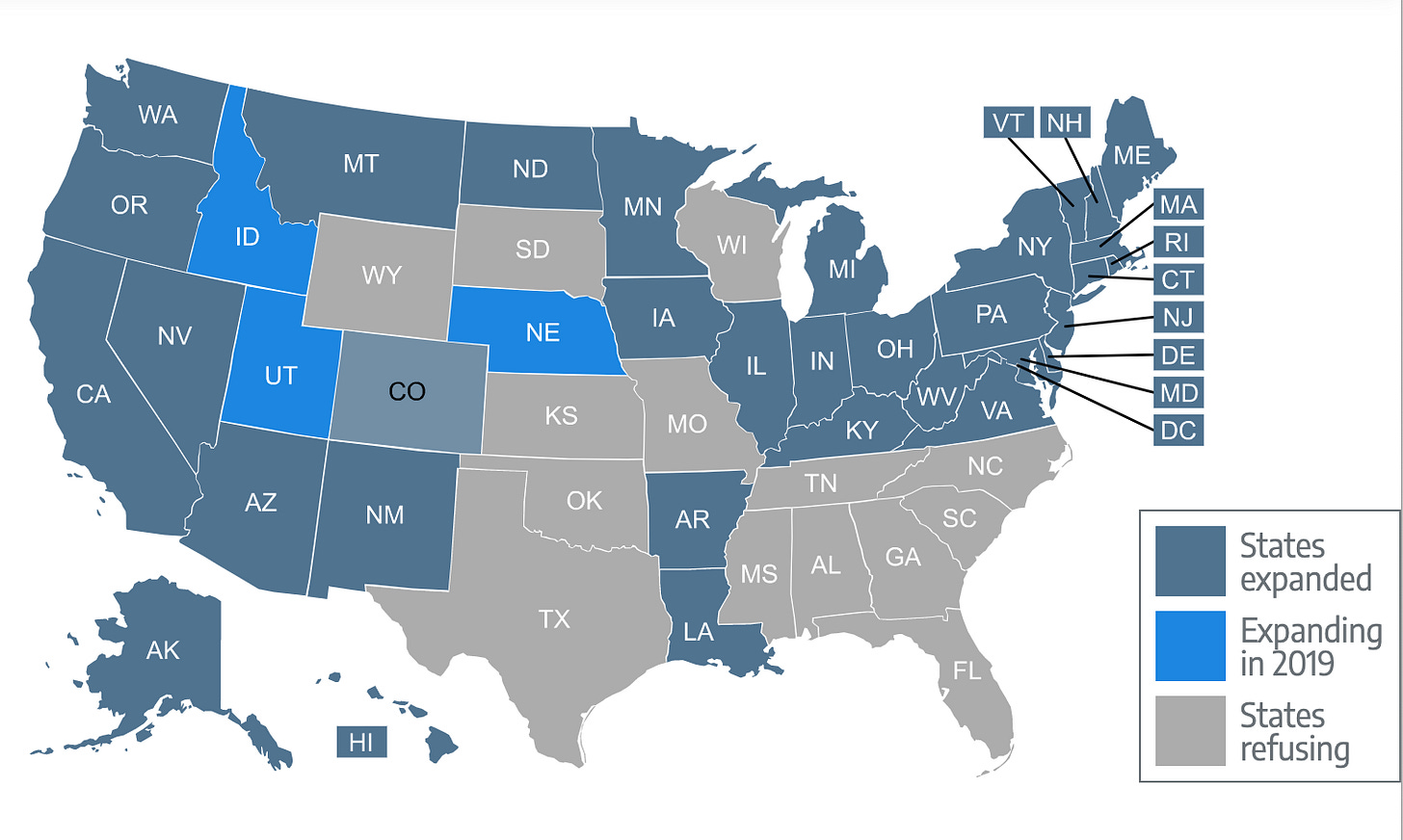Republicans set the stage for the COVID-19 pandemic. These Democratic candidates explain how their policies can fix it.
The pandemic shows that losing isn't an option
Winning elections in November and flipping states blue is now a matter of life and death.
The Trump Administration has gotten plenty of stick for its absolute failure to respond to (or, for a while, even believe in) the COVID-19 pandemic, all more than deserved. Unfortunately, Trump’s nuclear stupidity and extreme culpability for the immediate crisis have overshadowed an important fact: the entire Republican Party bears responsibility for not only setting the conditions for the pandemic’s spread, but also guaranteeing the dire situations in which so many people now find themselves.
The COVID-19 response bill that the House passed on Friday (and is still waiting for a vacationing Mitch McConnell to take a look at) is egregiously flawed, but our safety net is so thin that it still contains the most basic contours of policies that should have been passed generations ago. From refusing paid sick leave and expanded healthcare coverage to the privatizing of hospitals and supply chains that have stores short on basic necessities, Republicans have created this situation with 40 years of assaults on government and economic equality.
Because so many of these policies are left to states to handle, flipping legislatures blue this year will be essential to ensuring Americans are not left helpless and vulnerable going forward.
With this in mind, Luisa Wakeman, a cardiac nurse running for State House in Georgia, is redirecting her campaign’s resources into efforts to help the community navigate through COVID-19.
“As a nurse, I worry about the healthcare system, and whether we will have sufficient resources to help the sick when the pandemic reaches a peak,” she tells me. “I worry about where we are in the progression of the virus since there are no data points that we could have had with preparation and testing. I worry about the healthcare workers who will forget to care for themselves while working long hours to save more lives.
“My campaign is in a unique position to have a pulse on the community, volunteers at the ready and a network of phenomenal people who care about helping others,” she adds. “As a nurse, I can be a resource for answering questions and sharing factual information.”

Paid Sick Leave
Republicans have fought for decades against requiring any kind of paid sick leave for workers. In Texas just last year, the Republican State Senate voted to approve a bill that would have struck down local ordinances guaranteeing employees a paid sick day after San Antonio’s City Council had the audacity to request humanity from its corporate denizens.
While that bill didn’t become law (simply because Republicans also tried to make it legal to discriminate against employees and businesses told them no!), a ban on cities enacting paid sick days has been enacted by a whopping 25 other states. Plus, the pay raise in San Antonio is still being held up in court.
In DC last week, Republicans in Congress fought tooth and nail to get big businesses exempted from the requirement in the emergency COVID-19 bill passed by the House, leading to a stunning 80% of workers being left out of coverage.
This blockade has long led to sick people having to choose between recovery and a paycheck, a cruel policy that has become a desperately dangerous one during this pandemic. Service workers who handle food should never be docked pay for staying home from work while sick, especially not when there’s a literal plague going around.
Policies that progressive candidates have been touting on the trail are now suddenly getting attention from a mainstream media that’s generally friendly to business interests.
“We need worker protection laws that make sure people can earn a living wage, that companies don't scam employees from benefits by hiring two part-time workers for one job, and that employees aren't fired because they get sick,” says Wakeman.
At $5.15 an hour, Georgia’s minimum wage is actually lower than the pitiful national wage of $7.25, which means that there’s little chance a sick worker is going to miss a shift if at all possible.
“We also need to protect employees when they get hurt on the job — too many companies push the responsibility on employees for dangerous working conditions and that just doesn't make sense,” Wakeman says. “During a healthcare crisis, those who will be most exposed to the virus are likely low-wage earners.”

Medicaid Expansion
Not only have many Republican legislatures refused to expand Medicaid, the healthcare program for the poor and vulnerable, but a number of those states have even fought to stop expansions directly approved by citizen ballot initiatives.
In 2018, we saw red states such as Utah, Idaho, and Nebraska vote to expand Medicaid, only to have their governors and legislatures slow-walk the new healthcare benefits or try to saddle them with unobtainable work requirements. Other GOP-held states have also begun burdening enrolled recipients with cumbersome work requirements, lowering the number of people who can access care. And major GOP-controlled states such as Texas, Florida, Georgia, and North Carolina have put a stop to any expansion altogether, keeping millions of people away from medical care out of sheer cruelty.
Akilah Bacy, one of our endorsed candidates in Texas, points out the fallacy of the reliance on private, for-profit insurance.
“They say everybody likes their private insurance, but when you have almost a quarter of Texans not insured, guess what? The people who have insurance are still susceptible because everyone else is out working, out in the community, and people are not going to go get tested if it cost them $1300 to get a possible yes.”

The House’s flawed Coronavirus response bill would make testing free, but with the Senate gone for a long weekend and in no rush to pass it, we’re still looking at states and individuals footing the bill for a test that we need everyone to take ASAP.
“We saw this pandemic coming in December, but no one took it seriously until last week,” Bacy says, referring to the Republican government in Austin.
Medical Infrastructure and Rural Hospitals
The GOP-approved growth of for-profit hospital chains, denial of Medicaid expansion, and other factors have led to a massive shuttering of rural hospitals over the last half-decade. It’s turned working communities into medical deserts that can be hours away from the closest hospital. Texas has been hit extra hard, with a huge shortage of hospital beds, doctors, and the most hospital closings in the nation since 2010.
That dearth of care, along with the total surrender of the supply chain to foreign producers, are two reasons why there have been so few tests for COVID-19 during this crisis.
“As a nurse, I worry about the healthcare system and whether we will have sufficient resources to help the sick when the pandemic reaches a peak,” Wakeman says. Georgia, a state with over 10 million people, already has identified nearly 70 cases of COVID-19, but because there has been so little testing done in the state, there is virtually no accurate data or obvious path forward at the moment.
It doesn’t help that Republicans including her opponent, Rep. Sharon Cooper, have spent weeks comparing the pandemic to the common flu — just last week, Cooper told voters that there “was no reason to panic” and suggested most people wouldn’t be impacted by the outbreak.
“Going forward, we need access to testing, we need a statewide coordinating team for critical care beds, we need a database of healthcare workers who are currently not affiliated with a hospital who can fill in where needed in a healthcare crisis, we need more people insured in Georgia so that they have access to healthcare by expanding Medicaid, we need a plan for our rural communities that have no hospital or even a doctor,” Wakeman says.
“We also need a plan for our students who rely on services from schools that are now shut down. This crisis is showing just how many families are struggling.”
With little help coming from the government, it’s clear that it’s going to require sacrifices from brave health professionals and selfless citizens to navigate through this crisis and ensure that everyone is safe — viruses don’t really care much about state borders, so we all have maximum skin in the game. With this in mind, Wakeman is redirecting her campaign’s resources into efforts to help the community navigate through COVID-19.
“We are in a unique position to have a pulse on the community, volunteers at the ready and a network of phenomenal people who care about helping others,” she explains. “As a nurse, I can be a resource for answering questions and sharing factual information.”
The list of people-first policies that could have helped prepare us for this outbreak and its impact is almost endless. From higher minimum wages (allowing people to put away some money and stay home from work) to help with food deserts (thus avoiding all those panic runs on grocery stores), progressive ideas that have long been called expensive pipe dreams are now being seen as rational, bare minimum policies that must be enacted ASAP. The cost is just too high otherwise.
Bacy, who has spent much of her legal career doing defense and pro-bono work, often says that “we rely too much on the kindness of strangers to do the job of the government.” The COVID-19 outbreak is a perfect example of how cruelly, purposely inept our government has become and just how crucial it will be to flip statehouses and pass progressive policy if we want any chance of getting through this crisis and avoiding the next one.
Read our other 2020 candidate interviews: TX-HD-138 | FL-HD-89 | TX-HD-28 | GA-HD-43 | NC-SD-31
Next week, we will return to new candidate interviews.
Thank you to recent incredible financial supporters: Gary Elden, Dan Fudala, Linda Larkin, and Nancy Keleher!
A note about our crowdfunding campaign: Progressives Everywhere will always be a free newsletter. Together we've raised over $890K for progressives candidates and causes! We’ve grown so much that it costs $100 just to send this email, and there are other costs as well. To help, you can subscribe to our $5 a month premium edition (which comes with weekly bonus issues) or make one-time donations at GoFundMe (you’ll be thanked in future public editions of the newsletter). I know you are asked time and again for money in this campaign cycle, but any little bit helps!


